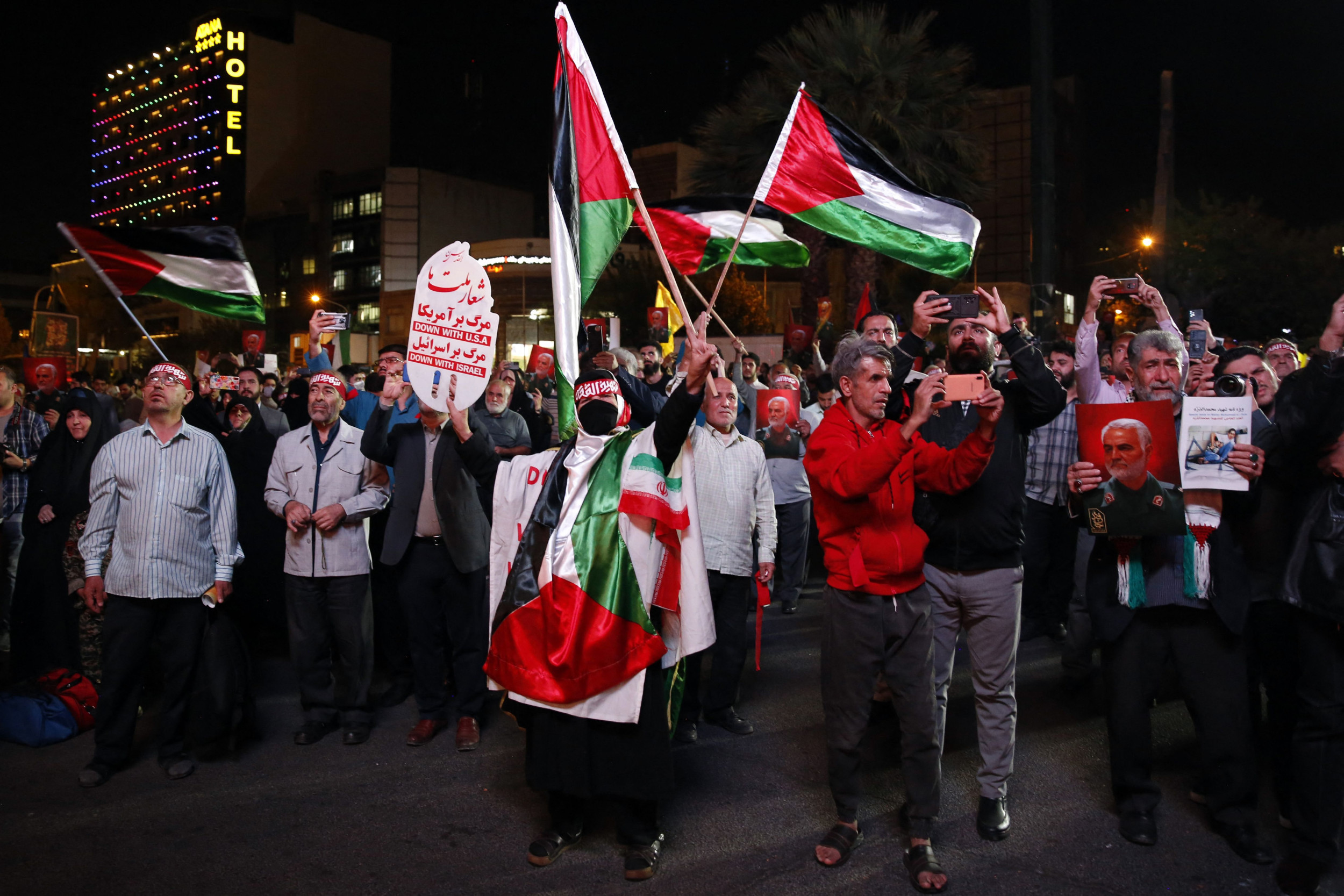The Hamas attack on Israel showed a sophistication in planning and execution that points clearly to a deep Iranian role. Intelligence experts told the Washington Post that “key support from Iranian allies who provided military training and logistical help as well as tens of millions of dollars for weapons” were behind the Hamas atrocity. And Deputy National Security Advisor Jon Finer has said, “In terms of broad complicity, we are very clear about a role for Iran,” because of its support for Hamas. Whether or not Iran was directly involved in this attack, as many experts believe, it could not have happened without Iran.
Just as Iran turned the Lebanese Shia militant and political organization Hezbollah into one of the world’s largest and most dangerous terrorist groups, so it has been pouring money into Hamas for years—training its gunmen, helping with plans and providing all the weaponry it could smuggle in.
The Hamas attack is a reminder not only of the medieval barbarity of that group, but also of the Iranian role in the Middle East. Just as Iran has continued to interfere in Iraqi politics and support Shia militias there, and prevent stability in Lebanon through Hezbollah, so it is trying to prevent any progress between Israel and Arab states or between Israel and Palestinians.
Peace in the Middle East is not in Iran’s interest and Iran is acting to prevent it.
Israelis learned from this attack that the notion they could reach a modus vivendi with Hamas was false. They thought they could live with Hamas, but they have learned Israelis will die with Hamas in power. And in the coming weeks they will move to crush that organization.
What have we learned?
Quite similarly, the United States has often thought we could live with the Islamic Republic of Iran, keep it from building a nuclear weapon and stabilize the Middle East with its help. President Barack Obama once said our friends in the Middle East must learn “to share the neighborhood” with Iran. But as Iran’s help allows Hamas to murder Israeli civilians in massacres, can we still ignore the two main slogans of the regime: “Death to America and Death to Israel?”
American policy toward Iran has varied: Obama wanted an accommodation, while Trump wanted maximum pressure. Under the current administration, enforcement of sanctions on Iranian oil exports has been relaxed and Iranian reserves have climbed from 4 billion dollars to roughly 10 times as much—plus the recent deal in which it released five American hostages and in exchange the United States unlocked $6 billion in Iranian oil revenue that had been frozen.
Iran has plenty of cash to distribute to terrorist groups. This is a foolish and dangerous U.S. policy and should be reversed. The Hamas massacres should have taught us a lesson about Iran’s friends, proxies and goals. U.S. policy should return to the toughest possible diplomatic and economic pressure on the regime—and support of the Iranian people.
Today, Iran has a fateful decision to make: While Israel is caught up in the fight against Hamas, will Iran instruct Hezbollah to make this a two-front war by attacking Israel from the north? There have been skirmishes on the Israel-Lebanon border recently, but Iran’s intentions are unclear. Hezbollah’s threat on Israel’s northern border is often described as a deterrent to ward against Israel striking Iran’s nuclear facilities and to preserve a second-strike capability for Iran if Israel were to attack. If that’s right, Iran will want Hezbollah intact. But if Iran thinks it can permanently damage and perhaps even destroy Israel through a two-front war, it may be tempted to try.
The United States should make it clear that we will not let that happen. Iran may not believe us, because it has been killing Americans directly and through proxies for more than 40 years: the bombing at the Khobar Towers housing complex in Saudi Arabia in 1996, killing 19 airmen; the Beirut Marine Barracks in 1983, where 241 U.S. military personnel died; and hundreds of GIs killed in Iraq by Iranian-backed terrorist groups. And Iran has done this with impunity, with the United States refraining from punishing the regime at all or imposing economic sanctions that have not deterred Iran from acting again. Now we are learning that 14 Americans were killed by Hamas, and the total may rise.
Will Iran get away with that too, as it did in Iraq?
It’s time for a new policy, one that sides with the Iranian people against the regime and uses whatever assets we can to weaken it. The Iranian people never chose to live under a theocratic dictatorship, and never chose to use their nation’s wealth to support terror. In 2009, 2018 and again in early 2023, their mass protests against the Iranian regime showed their true feelings.
The United States should adopt a policy of seeking peaceful regime change, as the Reagan administration did with the Soviet Union. This means speaking out loudly about human rights abuses in Iran, working to give the Iranian people access to information through broadcasting and internet access and it means enforcing tough economic sanctions to starve the regime of resources.
There will never be peace in the Middle East, and there will not be an end to the killing of Americans there, while Iran is free to pursue its “Death to America” policy.
The Hamas massacres have forced Israel to confront some bitter realities. We are 5,000 miles away, but it is time for us to learn the lessons as well.
Elliott Abrams is a senior fellow for Middle Eastern Studies at the Council on Foreign Relations and served as a deputy national security adviser in the George W. Bush administration.
The views expressed in this article are the writer’s own.

